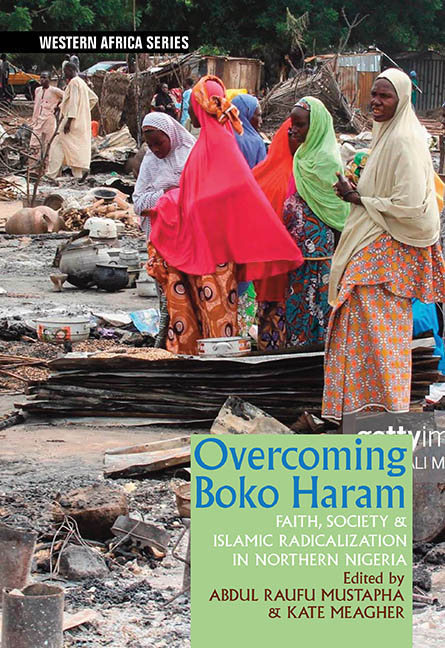Book contents
3 - Why in Borno? The history, geography & sociology of Islamic radicalization
Published online by Cambridge University Press: 21 March 2020
Summary
Introduction
Since the return to civil rule in 1999 and especially since 2002, Nigeria has suffered from extreme insecurity owing to escalating communal clashes, electoral violence and religious crises – the most serious of which is the Islamic insurgent group known as Boko Haram whose anti-establishment campaign commenced in 2002. The American-based Council on Foreign Relations document that, since 2011, some 60,000 people were killed in Nigeria from various causes, with Boko Haram as the most significant source of violent deaths (Council on Foreign Relations 2019). Borno State is viewed as the most insecure of Nigeria's 36 states. Between November and December 2018 alone more than 200 people were killed by Boko Haram in Borno (Ogundipe 2018; The Defense Post 2018). From its origins in Borno State, the Boko Haram insurgency has threatened the security of the Nigerian state and the Lake Chad region, turning this remote North East state into a central focus of national as well as global attention. Amid the ongoing mayhem, many have wondered why this violent Islamic insurgency has emerged in the comparatively quiet state of Borno. For many people, the question ‘why in Borno?’ is important to explain the disproportionate effect of this remote insurgency on the stability of the Nigerian state.
The effect of the insurgency on Borno's social and economic activities has been devastating as loss of lives and abductions continue without an end in sight. Of the three Nigerian states previously placed under emergency rule – Borno, Adamawa and Yobe – Borno State has recorded the highest number of displaced persons, reaching over 1.5 million out of some 2 million displaced across all affected states (International Office for Migration, 2018). Many of the displaced are refugees in neighbouring Chad, Cameroun and Niger. This disturbing trend is a radical departure from Borno's peaceful past. Few imagined that Borno would spark a crisis of this magnitude, or suffer such devastating effects. In fact, the security situation of the state at the moment is so overwhelming that even Nigeria's security officials appear helpless. We approach the search for explanations through historical, geographical and social science perspectives. Uncovering the contribution of these various factors will guide our understanding of radicalization, as well as how best to approach deradicalization and counter-radicalization efforts.
- Type
- Chapter
- Information
- Overcoming Boko HaramFaith, Society and Islamic Radicalization in Northern Nigeria, pp. 64 - 92Publisher: Boydell & BrewerPrint publication year: 2020
- 1
- Cited by

